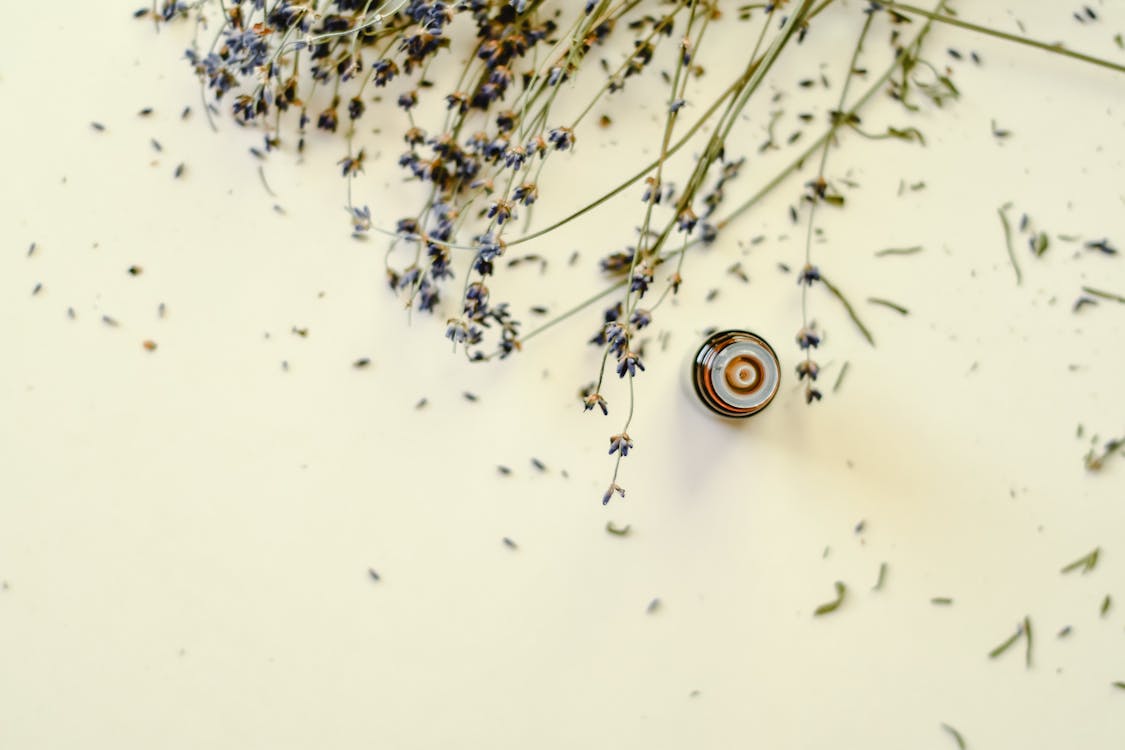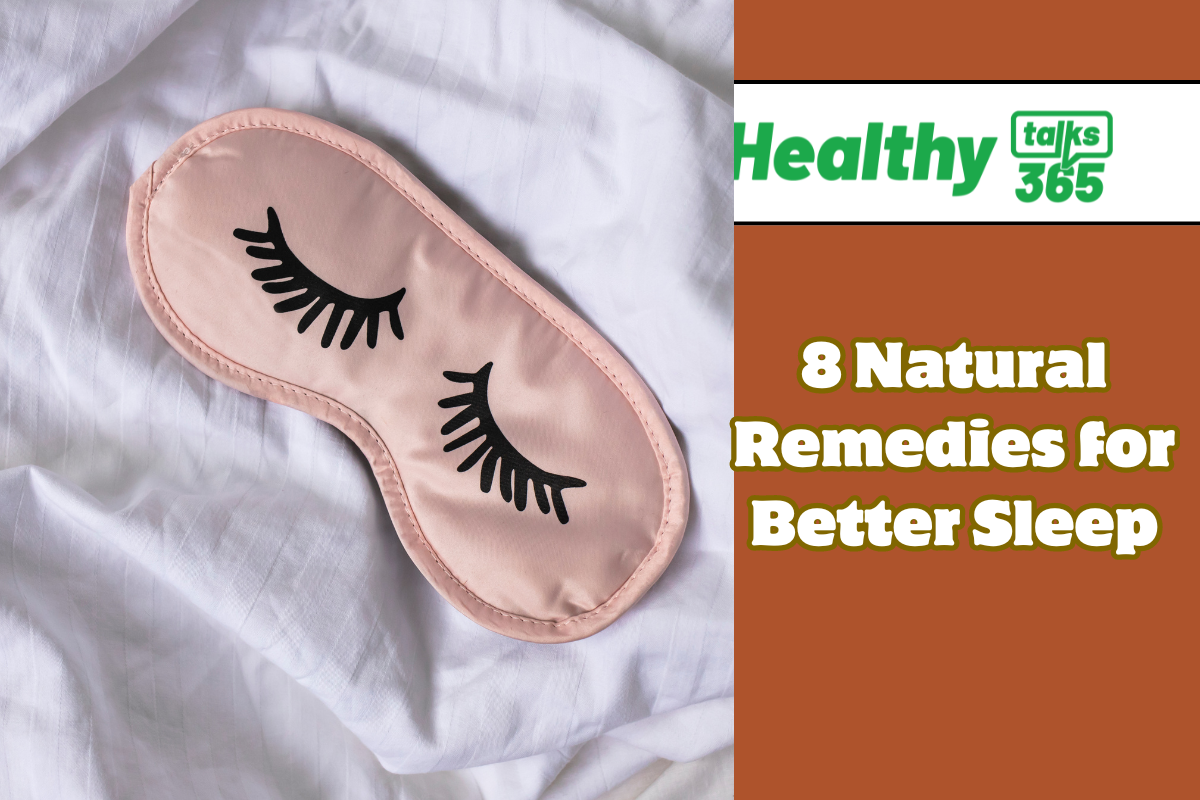8 Natural Remedies for Better Sleep
1. Chamomile Tea
Chamomile tea has been used for centuries as a natural remedy to promote relaxation and improve sleep quality. It contains apigenin, an antioxidant that binds to certain receptors in your brain, helping to reduce anxiety and initiate sleep. Sipping on a warm cup of chamomile tea before bedtime can soothe your nerves and calm your mind, making it easier to drift off into a restful slumber.
Chamomile tea has also been shown to have anti-inflammatory properties, which can help soothe digestive issues and promote relaxation. Additionally, chamomile tea contains antioxidants that can help protect against cell damage and reduce the risk of chronic diseases. To enhance the sleep-promoting effects of chamomile tea, try pairing it with a relaxing activity like reading or listening to calming music before bed.
Read Also:
11 Best Ways to Improve Your Digestion
2. Lavender Essential Oil
Lavender essential oil is renowned for its calming and sedative properties, making it a popular choice for promoting better sleep. Inhalation of lavender oil has been shown to reduce heart rate and lower blood pressure, creating a state of relaxation conducive to falling asleep. You can diffuse lavender oil in your bedroom, add a few drops to your pillow, or even mix it with a carrier oil for a relaxing massage before bedtime.
Lavender essential oil has also been shown to have antiviral and antibacterial properties, making it a great natural remedy for promoting overall health and well-being. When using lavender essential oil for sleep, try combining it with other calming essential oils like bergamot or ylang-ylang for a synergistic effect. You can also add a few drops of lavender oil to your pillowcase or bedding for a calming scent that lasts throughout the night.

3. Valerian Root
Valerian root is a herb native to Europe and Asia that has been used for centuries as a natural remedy for insomnia and anxiety. It contains compounds that increase the levels of GABA (gamma-aminobutyric acid) in the brain, a neurotransmitter that helps regulate mood and promote relaxation. Taking valerian root supplements or drinking valerian tea before bed may help you fall asleep faster and improve sleep quality.
Valerian root has also been shown to have anti-anxiety effects, making it a great natural remedy for individuals who experience stress and anxiety before bed. Additionally, valerian root has been shown to improve sleep quality in individuals with restless leg syndrome and other sleep disorders. To enhance the sleep-promoting effects of valerian root, try combining it with other natural remedies like melatonin or magnesium.
4. Magnesium Supplements
Magnesium is an essential mineral involved in over 300 biochemical reactions in the body, including those that regulate sleep. Low magnesium levels have been linked to insomnia and poor sleep quality, so supplementing with magnesium may help improve sleep patterns. Magnesium can also help relax muscles and calm the nervous system, making it easier to unwind and prepare for sleep. You can find magnesium supplements in various forms, such as magnesium citrate or magnesium glycinate.
Magnesium supplements have also been shown to have anti-inflammatory effects, which can help reduce symptoms of chronic diseases like arthritis and fibromyalgia. Additionally, magnesium has been shown to improve cognitive function and memory, making it a great natural remedy for individuals looking to improve their focus and productivity. When taking magnesium supplements, be sure to choose a high-quality form like magnesium glycinate or magnesium citrate for optimal absorption.
5. Warm Milk
Warm milk has long been touted as a natural sleep aid, and for good reason. Milk contains tryptophan, an amino acid precursor to serotonin and melatonin, both of which are neurotransmitters involved in sleep regulation. Additionally, the ritual of drinking warm milk before bed can have a soothing effect on the mind and body, helping you relax and prepare for sleep. Whether cow’s milk or a plant-based alternative, a comforting mug of warm milk can be a comforting bedtime ritual.
Warm milk has also been shown to have a soothing effect on the digestive system, making it a great natural remedy for individuals who experience digestive issues before bed. Warm milk contains calcium, which is important for bone health and can help reduce symptoms of insomnia and restlessness. To enhance the sleep-promoting effects of warm milk, try adding a pinch of cinnamon or nutmeg for a calming and comforting effect.

6. Melatonin Supplements
Melatonin is a hormone produced by the pineal gland in the brain, which plays a crucial role in regulating the sleep-wake cycle. Melatonin supplements can also help reduce sleep disruptions caused by external factors like noise or light. Additionally, melatonin has been shown to have anti-inflammatory effects, which can help reduce inflammation and improve overall health. When taking melatonin supplements, it’s essential to establish a consistent sleep schedule and create a sleep-conducive environment to enhance their effectiveness.
Supplementing with melatonin can be particularly helpful for individuals with insomnia or jet lag, as it can help reset the body’s internal clock and promote feelings of drowsiness. Melatonin supplements are available over-the-counter in various strengths and forms, such as tablets, capsules, and even gummies. It’s important to consult with a healthcare professional before starting melatonin supplements, especially if you have any underlying health conditions.
Read Also:
7. Passionflower Tea
Passionflower tea is made from the dried leaves, flowers, and stems of the passionflower plant, which has been used traditionally as a natural remedy for anxiety and insomnia. It contains flavonoids that may exert sedative effects on the nervous system, helping to induce feelings of relaxation and promote better sleep. Drinking passionflower tea before bedtime may help calm racing thoughts and reduce anxiety, making it easier to fall asleep and stay asleep throughout the night.
Passionflower tea has also been used to treat restlessness and agitation in individuals with attention deficit hyperactivity disorder (ADHD). The flavonoids present in passionflower tea may also help reduce symptoms of menopause, such as hot flashes and night sweats, making it a great natural remedy for women’s health. To enhance the sleep-promoting effects of passionflower tea, try combining it with other calming herbs like chamomile or lavender.
8. Yoga and Meditation
Yoga and meditation are ancient practices that have been shown to promote relaxation, reduce stress, and improve sleep quality. Practicing gentle yoga poses and mindful meditation techniques before bed can help quiet the mind, release tension from the body, and prepare you for a restful night’s sleep. Incorporating deep breathing exercises and progressive muscle relaxation into your bedtime routine can further enhance the relaxation response, making it easier to transition into a state of deep, restorative sleep.
Yoga and meditation can also help improve sleep quality by reducing symptoms of sleep disorders like sleep apnea and restless leg syndrome. Additionally, regular yoga and meditation practice can increase the production of melatonin and other sleep-regulating hormones, leading to improved sleep quality and duration. To incorporate yoga and meditation into your bedtime routine, try starting with short sessions (10-15 minutes) and gradually increasing the duration as you become more comfortable with the practices





